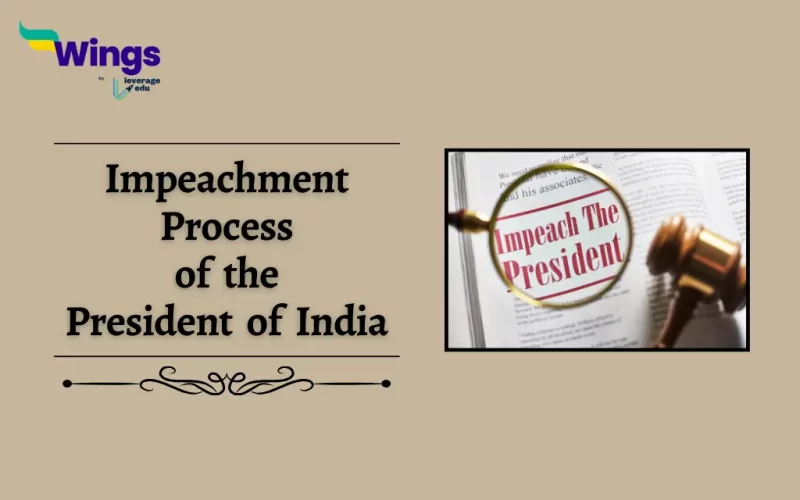The President of India is the official head of the Legislature, Executive and Judiciary as well as the Commander in Chief of our army, navy and air force. They exercise great power for five years after which they are in office. Nevertheless, at times, it becomes crucial to question such authority involving legitimacy and integrity. Furthermore, if there is an accusation against the President of India of misconduct against the Indian Constitution. They can be removed from their position through the Impeachment Process of the President of India.
Also Read: The First President of India, Dr Rajendra Prasad Education & Biography
What is the Impeachment Process?
The Impeachment Process is one such process that provides the privilege of relieving the existing President from all powers and obligations that come with that post. Hence, impeachment is a provision to keep the power of the President and other authorities in check. However, it can only be implemented in case of misconduct from their end. To date, none of the Presidents of India has been impeached.
Impeachment Process of President of India
If you look at the Impeachment Process, it is not as easy as voting out a minister in power. It is concerned with higher authority and also looks into cases of false accusations, therefore, there is a detailed impeachment process for the president of India.
- To impeach a president for violation of the Constitution, the charges should be approved by both houses of the parliament.
- The proposal of accused charges must be contained in a resolution.
- The proposal should have moved after a 14-day notice period.
- One-fourth of the members of the House of Parliament should sign it. This is done in the house where the resolution is introduced
- It should be passed with a two-thirds majority from the total membership of the house.
- The other house will then investigate the charge of which the President has been accused.
- Moreover, the president can also be present at this time to present his case.
- If the charges are sustained after the investigation has been completed. The members then vote on the resolution. If they are in favour of removing the President from office with at least a two-thirds majority of the total membership, it leads to the immediate removal of the President from office.
Also Read: Important Articles in Indian Constitution
Article 50
Article 50 of the Indian Constitution is a part of Directive Principles of State Policy (DPSPs) under Part IV of the Constitution. It provides detailed knowledge of the separation of power between the Legislature, Executive and Judiciary. Moreover, it also lists the powers and functions of each pillar of the government. It mentions provisions to separate the judiciary from the executive to prevent abuse of power. The President and the Prime Minister fall under the Executive powers. This article of the Indian Constitution contains details about their tenure, process of appointment, duties, and other information.
Also Read: What is a National Emergency?
Article 61 Impeachment of the President of India
Article 61 of the Indian Constitution states the procedure of impeachment. The removal of the President for a violation of the constitution before the completion of their tenure is the focus. In this process, one house of the parliament initiates the process of impeachment and the other investigates it. Both houses together vote on the resolution with two-thirds of the total majority to pass this resolution and remove the President. In other cases, the resolution would fail.
What is the Importance of Impeachment?
Impeachment in India acts as a safety valve for the Constitution. It is a complex process reserved for extreme situations where the President or a Supreme Court judge commits serious misconduct or cannot perform their duties. Therefore, enabling their removal protects the integrity of these high offices and ensures they function within the legal framework. Though never used, impeachment serves as a vital check against abuse of power.
Related Blogs
Lastly, we hope you liked our blog and gained an understanding of the Impeachment Process of the President. Moreover, you may even read more blogs and empower yourself with knowledge regarding Civics and Polity!
 One app for all your study abroad needs
One app for all your study abroad needs













